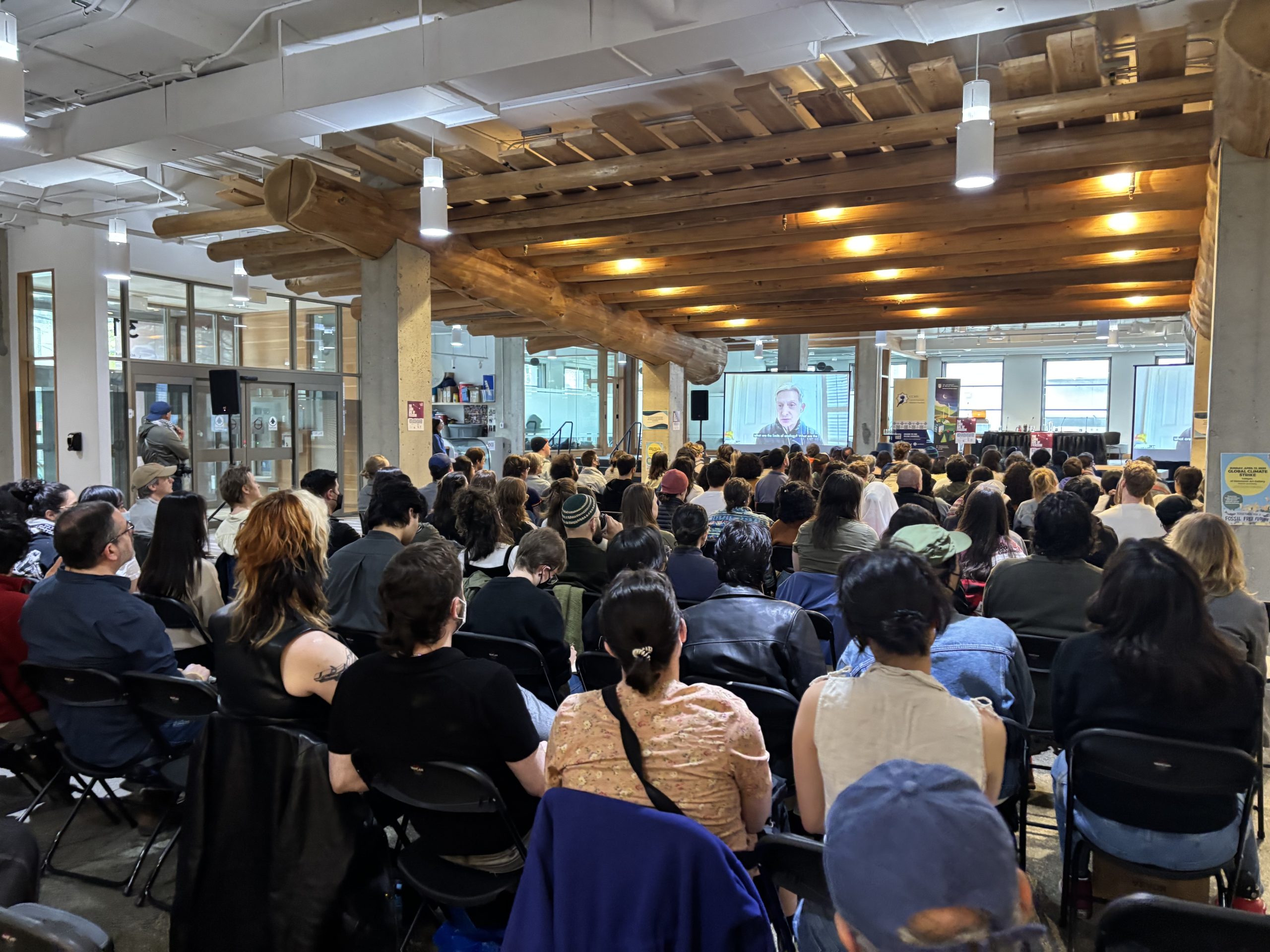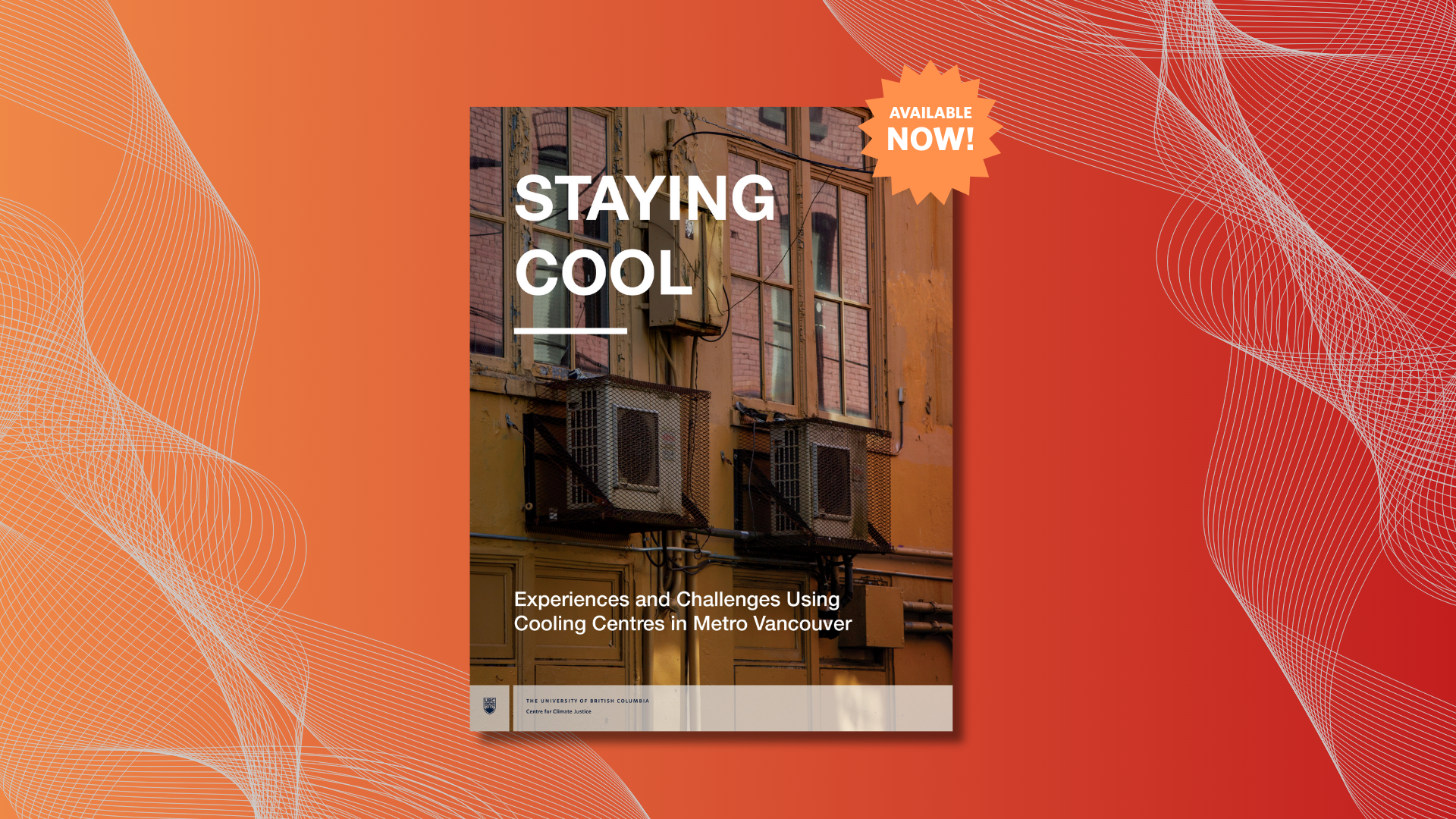Ahead of a high-stakes federal election and amidst intensifying global instability, award-winning author, activist, and CCJ Co-Director Naomi Klein took the stage alongside her brother, policy expert and climate advocate Seth Klein, for a powerful evening of insight and urgency. Moderated by Elamin Abdelmahmoud of CBC Radio’s Commotion, this was a timely conversation about politics, policy, and public imagination in an age of escalating crisis. Watch the full recording here!
Framed around Naomi Klein’s core thesis that “the shock doctrine is a democracy avoidance strategy,” the conversation explored how crisis has been systematically weaponized to push through unpopular economic agendas. “When people are in a state of shock and disorientation,” she explained, “they become more vulnerable to manipulation and more likely to accept policies they would otherwise reject.” With Trump once again threatening the international order and floating the idea of Canada as the “51st state,” she warned that our leaders are responding not by resisting, but by capitulating.
“What we’re seeing now is the impulse to meet threats from Trump not with transformation, but imitation.” Canadian policymakers, she noted, have framed the solution to economic vulnerability as more extraction, more deregulation, more pipelines — often in direct violation of Indigenous sovereignty.
“We don’t fight their oligarchy by giving ours everything they want.” – Naomi Klein
Seth Klein, author of A Good War: Mobilizing Canada for the Climate Emergency, argued that the scale and interconnectedness of today’s crises, from climate breakdown to inequality, call not only for resistance, but also for mobilization. Drawing on Canada’s WWII mobilization as an example, he underscored that transformation, not tinkering, is the only appropriate response. The war, he noted, was won not only through military might, but through a massive expansion of public programs and infrastructure, including the creation of crown corporations and social safety nets, moves that are unimaginable today without a shift in imagination.
“Incrementalism is no match for the overlapping emergencies we face.” – Seth Klein
Both Naomi and Seth Klein emphasized the need for proactive, people-powered policy, offering BC Policy Solutions’ Ideas to Meet the Moment as a contemporary toolkit of “ideas lying around” for transformative change, ready to be seized when the window opens.
A recurring theme was the erosion of political imagination under neoliberalism. Naomi and Seth spoke candidly about how years of austerity, privatization, and technocratic management have shrunk public expectations of what government can and should do, even in the face of existential threats. And yet, they noted, we have recent examples of rapid, ambitious public action: the COVID-19 emergency benefits, for instance, showed that governments can act quickly and decisively when compelled.
Elamin Abdelmahmoud pointed out how this proves what is possible — if the political will exists.
“We now know governments can move that fast. So why aren’t we asking them to do that for housing, for healthcare, for climate?” – Elamin Abdelmahmoud
The conversation also addressed the deeper psychological and social impacts of chronic crisis. Naomi reflected on the way constant shocks — pandemics, fires, inflation, and war — leave people depleted, not just disoriented. “I’m more concerned with our exhaustion than our shock,” she said.
“We’re in a moment of deep fatigue, and part of organizing now is about lifting each other up and creating spaces to recharge. That’s where art and gathering and care come in.”
The panelists warned against relying solely on strategic voting as a way to circumvent these challenges, and emphasized that strategic voting may stop a Conservative surge — but it cannot replace the deep, structural change needed to make our systems more resilient and just. With the election now behind us and the Liberals returning with a minority government, many voters feel they succeeded in holding the line. Strategic voting played a decisive role, reflecting a widespread effort to block a Conservative victory. But as the evening’s conversation made clear, holding the line is not the same as moving it forward. As our speakers emphasized, the moment demands more than damage control. Strategic voting may have delayed disaster, but it is no substitute for the sweeping transformation required to address the crises at hand.
Ultimately, the event served as both a warning and a rallying cry: in the face of climate breakdown, authoritarian resurgence, and economic precarity, Canada must reject business-as-usual and embrace bold, justice-centered solutions that can withstand the next shock – and prevent it from becoming a catastrophe.
Presented by the UBC Centre for Climate Justice, Vancouver Writers Fest, and the Chan Centre for the Performing Arts














